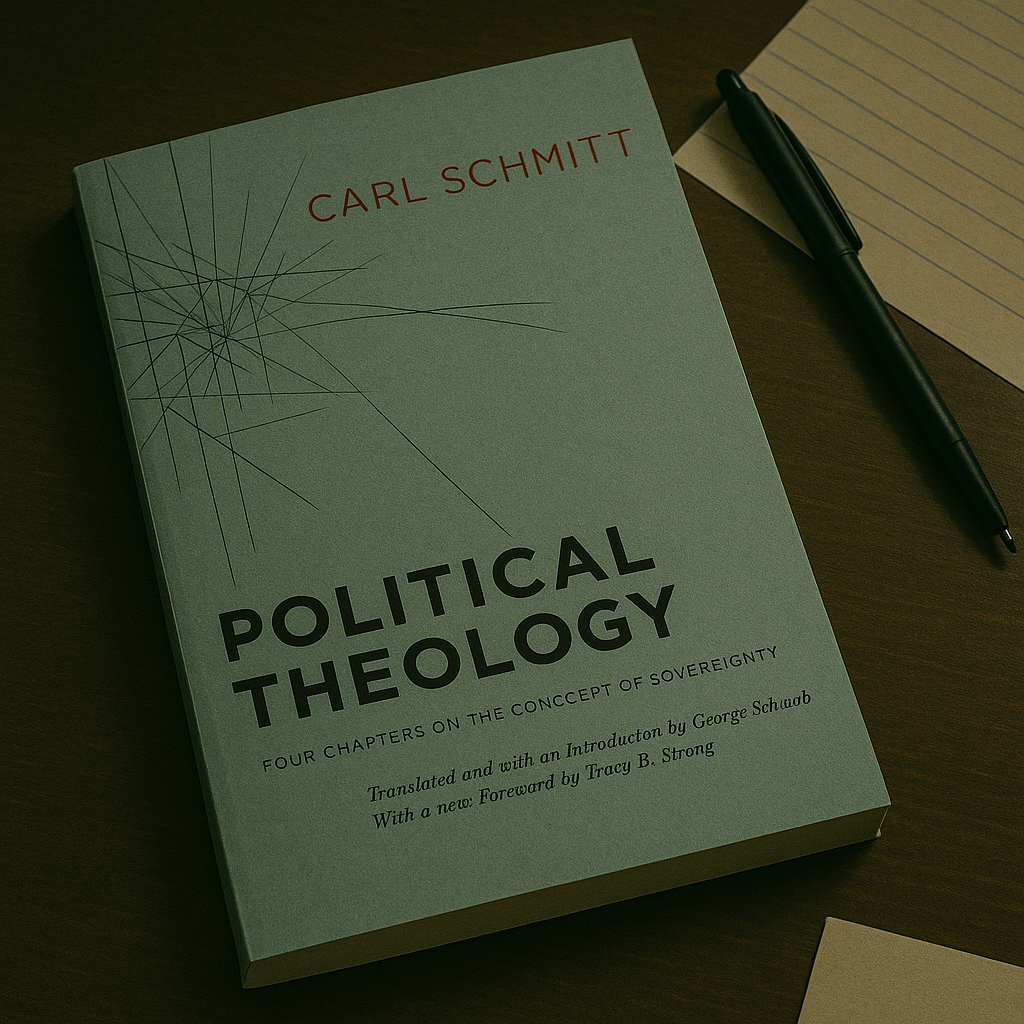Political Theology
Political Theology
Carl Schmitt
Carl Schmitt's influential treatise, Political Theology (1922), is perhaps the seminal examination of states of exception and their implications for democratic rule. Schmitt’s now-famous axiom, "Sovereign is he who decides on the exception," illustrates his proposition that sovereignty is defined not by the routine execution of law, but rather by the sovereign’s power to override it. Thus, the powers granted during states of emergency should be seen as anomalous or exceptional at all — they are instead inextricable from the notion of sovereignty itself. Schmitt presents his case through a quasi-theological lens, drawing parallels between exceptional political powers and religious concepts like divine omnipotence.
Schmitt's insights represent an essential intellectual resource for understanding how exceptions fundamentally shape political landscapes. While Schmitt’s focus on decisionism provides a stark lens for analyzing power, it also draws criticism for undervaluing institutional checks, civil liberties, and the role of public accountability in mitigating abuses of emergency powers. These omissions makes his work a cautionary resource for ISSE researchers: they demonstrate the ease with which crisis rhetoric can legitimize authoritarianism, even in democracies.
Additional references to further explore Carl Schmitt’s Political Theology include a detailed four-part reading series from Norwich University Professor Clifford Bates (Part 1) (Part 2) (Part 3) (Part 4). For further scholarly context, theStanford Encyclopedia of Philosophy entry on Carl Schmitt offers a comprehensive overview of his intellectual trajectory. For those seeking a deeper theoretical framing, Paul Kahn’s bookPolitical Theology: Four New Chapters on the Concept of Sovereignty offers a contemporary engagement with Schmitt’s thought and its implications for democratic theory.

